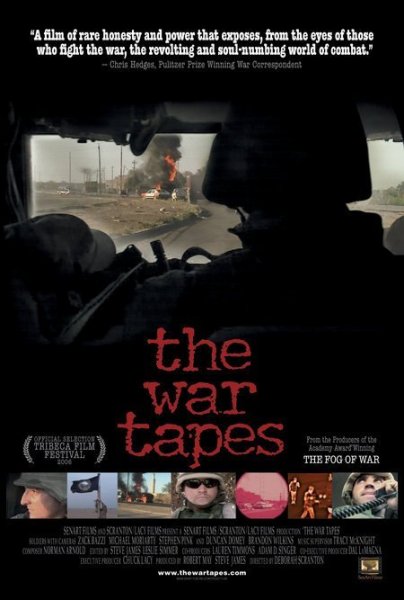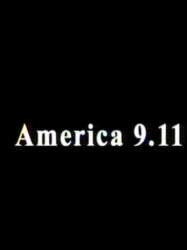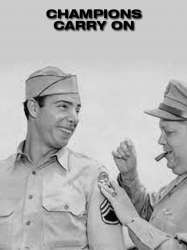The War Tapes is a film of genre Documentary released in USA on 22 october 2006
The War Tapes (2006)

If you like this film, let us know!
- Infos
- Casting
- Technical infos
- Photos
- Videos
- Film quotes
- Characters
- Music
- Awards
The War Tapes is the first documentary film of the 2003 invasion of Iraq to be produced by the soldiers themselves. The film (released commercially in 2006) follows three New Hampshire Army National Guard soldiers before, during, and after their deployment to Iraq about a year after the invasion. Their unit was Charlie Company, 3rd Battalion, 172nd Infantry Regiment (Mountain), which deployed from March 2004 to February 2005.
The three soldiers with cameras featured in the film are SPC Michael Moriarty who signed up in a burst of patriotism after 9/11 and asked to be shipped to Iraq. His colleagues are SGT Stephen Pink, who joined the National Guard to help pay for college, and SGT Zack Bazzi. Two other soldiers, SGT Duncan Domey and SPC Brandon Wilkins, also filmed their entire deployments for the film. In all, 17 soldiers were given cameras and recorded 800 hours of tape in Iraq. Stateside interviews with the soldiers and their families made up an additional 200 hours of tape. The "cast" was narrowed to three soldiers for the final feature-length film. They were chosen in part because they were seen by the director and producers as the "main characters".
The film won the prize for Best International Documentary at the Tribeca Film Festival in May 2006 and also Best International Documentary at BRITDOC in July 2006. The documentary was released for sale on DVD May 15, 2007. Moreover, it is possibly the most innovative result of the embedded reporter program. In this case the reporter did not go to Iraq, but provided cameras to the soldiers, and provided direction on filming to them via instant messaging and email.
Comments
Leave comment :
Suggestions of similar film to The War Tapes
There are 8965 with the same cinematographic genres, 8197 films with the same themes (including 867 films with the same 3 themes than The War Tapes), to have finally 70 suggestions of similar films.If you liked The War Tapes, you will probably like those similar films :

Prisoner of Paradise (2002)
, 1h36Directed by Malcolm Clarke
Origin USA
Genres Documentary
Themes Films about films, Films about racism, Films about religion, Documentary films about business, Documentary films about the film industry, Documentary films about racism, Documentary films about law, Documentary films about war, Documentary films about historical events, Documentaire sur une personnalité, Documentary films about religion, Political films, Films about Jews and Judaism, Documentary films about World War II, Documentary films about films
Actors Ian Holm, Renée Saint-Cyr, Hans Albers, Marlene Dietrich, Kurt Gerron, Peter Lorre
Rating74%






Sisters in Resistance (2000)
, 1hOrigin USA
Genres Biography, Documentary
Themes Films about racism, Films about religion, Documentary films about racism, Documentary films about law, Documentary films about war, Documentary films about historical events, Documentaire sur une personnalité, Documentary films about religion, Political films, Films about Jews and Judaism, Documentary films about World War II
Actors Kate Mulgrew
Ce film est l'histoire de quatre femmes exceptionnelles, résistantes, prisonnières, idéalistes qui à la fin de leurs adolescences risquèrent leurs vies pour combattre l'occupant nazi. Ni juives, ni communistes, elles rejoignirent la résistance alors qu'elles auraient pu tranquillement vivre en sécurité. Dans les deux ans qui suivirent, elles furent arrêtées par la Gestapo et déportées à Buchenwald. Aujourd'hui elles sont devenues des leaders sociaux ou intellectuels.

9-11: American Reflections (2001)
Origin USA
Genres Documentary
Themes Films based on the September 11 attacks, Films about religion, Films about terrorism, Transport films, Aviation films, Documentary films about law, Documentary films about war, Documentary films about historical events, Documentary films about politics, Documentary films about religion, Documentary films about technology, Documentary films about terrorism, Political films, Films about Islam, Disaster films, Films about aviation accidents or incidents, Films about hijackings

Black Box BRD (2001)
, 1h42Directed by Andres Veiel
Genres Documentary
Themes Films about terrorism, Documentary films about law, Documentary films about war, Documentary films about historical events, Documentary films about politics, Documentary films about terrorism, Political films
Rating73%






The Coconut Revolution (2000)
, 50minutesOrigin United-kingdom
Genres Documentary
Themes Environmental films, Documentary films about law, Documentary films about war, Documentary films about historical events, Documentaire sur une personnalité, Documentary films about politics, Political films
Rating81%





 , 10minutes
, 10minutesDirected by Ralph Staub
Origin USA
Genres Documentary
Themes Documentary films about business, Documentary films about the film industry, Documentary films about war, Documentary films about historical events, Documentary films about cities, Political films, Documentary films about World War II
Actors Eddie Albert, Desi Arnaz, Gene Autry, Art Baker, John Carroll, Jackie Cooper
Rating51%






Japanese Devils (2001)
, 2h40Genres War, Documentary
Themes Documentary films about war, Documentary films about historical events, Political films, Documentary films about World War II
Actors Yoshio Tsuchiya
Rating72%






Champions Carry On (1943)
, 10minutesOrigin USA
Genres Documentary
Themes Sports films, Documentary films about sports, Documentary films about war, Documentary films about historical events, Political films, Documentary films about World War II

Army Champions (1941)
, 11minutesDirected by Paul Vogel
Origin USA
Genres Documentary
Themes Documentary films about war, Documentary films about historical events, Political films, Documentary films about World War II
Actors Pete Smith
Rating60%






Eyes of the Navy (1940)
, 20minutesDirected by Walt Disney
Origin USA
Genres Documentary
Themes Transport films, Aviation films, Documentary films about war, Documentary films about historical events, Documentary films about technology, Political films, Documentary films about World War II
Actors Charles Middleton, Russell Wade
Rating57%





 Connection
Connection